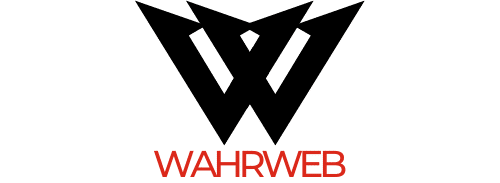Personal development and growth, two terms that resonate with us all in some way. Whether you are a business executive, an artist, a student, or a stay-at-home parent, there’s always room for improvement. And that’s what personal development and growth are all about: striving for a better version of ourselves.
In the following sections, we’ll delve into some key strategies that can help you in this quest of self-improvement. Remember, growth is not a one-time event; it’s an ongoing process.
A lire également : What Are the Best Strategies for Socializing a Puppy with Other Animals?
Taking Ownership of Your Personal Growth
Before even starting to think about strategies for personal development, you must first acknowledge that you are the captain of your ship. You are in control of your life and have the power to change and improve it.
Taking ownership of your personal growth means accepting that you are responsible for your life, your choices, your actions, and their consequences. It’s about understanding that nobody else can make you grow or rectify your mistakes. It’s all up to you.
Cela peut vous intéresser : How Can Investors Navigate the Shift Towards Urban Green Spaces in Real Estate?
Perhaps it sounds daunting, but it’s also incredibly empowering. You don’t have to wait for anyone’s permission or validation, you can start your personal development journey anytime and anywhere you choose.
Setting Clearly Defined Goals
Goals give us a sense of direction, they fuel our ambition and prompt us to take action. Therefore, setting clearly defined goals should be your first step in the journey of personal development and growth.
Start by contemplating what you want to achieve. Is it career advancement? Or perhaps you wish to cultivate a healthier lifestyle, or acquire a new skill? Whatever it is, you need to be specific. Avoid vague goals like "I want to be successful" or "I want to be fit".
Remember, goals should be SMART: Specific, Measurable, Achievable, Relevant, and Time-bound. This means your goals should be very clear, quantifiable, realistic, aligned with your values and interests, and have a set deadline.
Embracing Lifelong Learning
One of the most effective strategies for personal development and growth is embracing lifelong learning. This means staying curious and open-minded, eager to acquire new knowledge and skills at every stage of life.
Living in the digital age, you have access to endless resources and platforms that can assist in your learning journey. Online courses, webinars, podcasts, articles, books, you name it! There’s a vast world of knowledge at your fingertips.
Expanding your knowledge and skills not only enhances your personal and professional capabilities but also boosts your confidence, improves your problem-solving abilities, and increases your adaptability to change.
Implementing Self-Care Practices
Personal development and growth aren’t all about productivity and achievements. They’re also about nurturing your overall well-being. Self-care practices are vital for maintaining your physical, mental, and emotional health.
Self-care includes a wide range of activities, such as physical exercises, healthy eating, meditation, journaling, spending time in nature, or simply winding down with a good book or a favorite movie.
Remember that you can’t pour from an empty cup. Take care of yourself first, and you’ll be better equipped to handle life’s challenges and pursue your goals.
Cultivating a Positive Mindset
Lastly, a positive mindset is crucial for personal development and growth. It’s about looking at the bright side, seeing challenges as opportunities, and believing in your ability to grow and succeed.
Cultivating a positive mindset is not about ignoring the negative aspects of life. It’s about choosing to focus on the positive, practicing gratitude, and maintaining an optimistic outlook, no matter the circumstances.
A positive mindset will not only make your personal development journey more enjoyable but also increase your resilience, boost your motivation, and ultimately, enhance your overall life satisfaction.
Remember, personal development and growth are a lifelong journey. It’s a process of continuous learning, improvement, and adaptation. It’s the key to unlocking your full potential and leading a fulfilling life. So, embark on this journey with determination, patience, and a heart full of passion.
Embracing Emotional Intelligence in Personal Development
A key strategy in personal development and growth is the cultivation of emotional intelligence. Emotional intelligence is your ability to recognize and manage your own emotions and understand the emotions of others. It’s a significant factor in your overall well-being and your ability to interact effectively with team members, friends, and family.
Building your emotional intelligence can lead to improved relationships and a better capacity to manage stress, conflict, and self-regulation. It requires inner work, self-reflection, and a willingness to step outside your comfort zone.
To foster emotional intelligence, start by becoming more aware of your emotions. Identify what triggers certain feelings, and how these emotions impact your behavior. It’s also essential to practice empathy and active listening when interacting with others. This will help you understand their emotions and perspectives better, fostering stronger relationships.
By cultivating emotional intelligence, you’re not only boosting your personal development but also enhancing your interpersonal skills and overall quality of life.
Creating a Personal Development Plan
A personal development plan (PDP) is a roadmap to achieving your personal goals and reaching your full potential. It provides a structure for your journey towards self-improvement and helps keep you on track.
Creating a PDP starts with self-reflection. Consider your strengths, weaknesses, values, and aspirations. Identify areas for improvement and set goals to work on these areas.
Remember, the goals in your PDP should be SMART. Once you’ve set your goals, devise a plan to achieve them. This could include attending workshops for career development, reading books to gain knowledge, exercising for better health, and so forth.
Regularly review and adjust your PDP as needed. Life is dynamic, and so are you. Your goals may change over time, and that’s okay.
Creating a personal development plan will not only help you identify your goals but also provide a structured approach to achieving them.
Conclusion
In conclusion, personal development and growth are integral parts of our lives. They contribute to our happiness, success, and satisfaction in life. By taking ownership of our growth, setting clearly defined goals, embracing lifelong learning, implementing self-care practices, cultivating a positive mindset, fostering emotional intelligence, and devising a personal development plan, we set ourselves up for a journey of continuous improvement and adaptation.
Remember, the journey of personal growth is a lifelong process, not a destination. It’s about becoming the best version of ourselves, unlocking our full potential, and leading a life of purpose and performance. So, let’s embark on this journey with courage, patience, and a heart full of passion, and make the most of the endless possibilities that personal development and growth offer.
To quote Lao Tzu, "The journey of a thousand miles begins with a single step." Take that first step today, and keep moving forward. Your future self will thank you.





